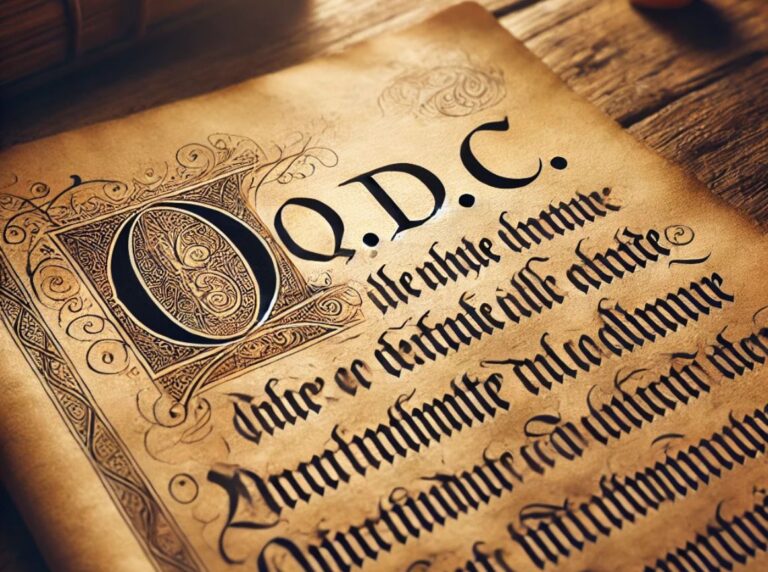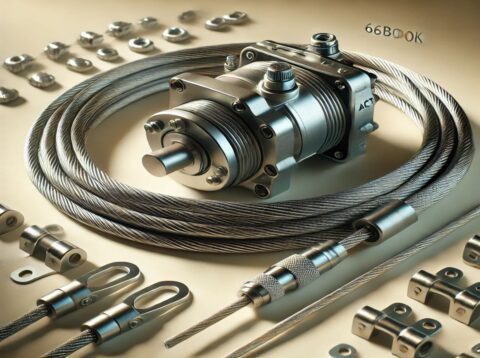Old English is an intricate and fascinating language that carries with it a deep history of linguistic evolution. Within this framework, the q.d.c.old english abbreviation. emerges as an important part of understanding texts from medieval times. In historical manuscripts, understanding abbreviations was crucial, and as modern scholars or enthusiasts, grasping these concepts can unlock significant historical insights.
In this comprehensive guide, we will unravel the meaning behind Q.D.C., explore its usage, and delve into the broader context of Old English abbreviations. We aim to provide you with a rich, detailed understanding of these abbreviations, their applications, and their importance.
What Does Q.D.C. Stand For in Old English?
The abbreviation Q.D.C. is frequently found in historical texts, particularly in legal or ecclesiastical documents from medieval England. q.d.c.old english abbreviation stands for “quod Deus concedat,” which translates to “which God may grant.” This phrase is often invoked in documents where a blessing or divine approval is being sought.
The significance of Q.D.C. lies in its use to express pious hope or divine support, often appearing in religious contexts. It indicates the speaker’s or writer’s appeal to divine providence in ensuring the success or righteousness of an endeavor. In the heavily religious societies of Old English-speaking regions, such terms were not merely formalities but an integral part of written discourse.
The Role of Abbreviations in Old English
Abbreviations were a practical tool in Old English manuscripts. Given the time-consuming process of hand-copying texts, scribes often used abbreviations to save time and space. This practice became especially important when dealing with large volumes of legal or religious texts. q.d.c.old english abbreviation is just one example of the many abbreviations that populated these manuscripts, each carrying with it significant meaning and importance.
Old English scribes were meticulous in their use of these abbreviations. Abbreviations such as Q.D.C. were often found at the end of documents, where conclusions or final blessings were offered. Their appearance signified not only the end of a legal or ecclesiastical statement but also a final invocation for divine blessing or sanction.
Historical Context of Q.D.C. in Legal and Ecclesiastical Texts
During the Middle Ages, the connection between the church and the state was profound. Legal documents were often intertwined with ecclesiastical matters, and the phrase “quod Deus concedat” reflected the importance of invoking God’s will. When kings, noblemen, or church officials drafted or signed off on important texts, q.d.c.old english abbreviation was used to ensure that the actions were seen as being in line with divine will.
In this period, Q.D.C. was frequently employed in the closing statements of charters, contracts, and decrees. Such texts were vital in the administration of both secular and religious affairs, and the presence of Q.D.C. added a solemn and binding element, as if the approval of God was being requested for the text’s contents.
How Was Q.D.C. Used in Manuscripts?
In medieval England, manuscripts were painstakingly created by scribes in monasteries and legal institutions. The use of abbreviations like Q.D.C. was not arbitrary. Scribes employed standardized forms of abbreviation to ensure consistency and avoid misinterpretation.
Q.D.C. typically appeared in specific contexts. It was commonly found in:
- Charters and Legal Documents: Used in concluding phrases to request divine approval for a transaction or agreement.
- Religious Texts: Particularly those that dealt with oaths, vows, or prayers for divine assistance.
- Decrees and Official Letters: Especially in correspondence involving church officials, where invoking God’s support was a formality and a sign of piety.
The Importance of Religious Invocations in Old English Texts
Religious invocations like quod Deus concedat were more than just formal expressions in Old English society; they reflected a deep connection between the temporal and the divine. In medieval England, religion was inseparable from daily life, and this was clearly evident in the legal and official language of the time.
When we encounter Q.D.C. in documents today, we are reminded of how central religion was to all forms of discourse, from daily business transactions to solemn religious vows. Understanding this abbreviation gives modern readers a glimpse into the spiritual mindset of medieval society, where every action was thought to be under the purview of God’s will.
Other Common Q.D.C.Old English Abbreviation
To better understand q.d.c.old english abbreviation, it is essential to explore other common abbreviations used in Old English manuscripts. Some of the most frequently encountered abbreviations include:
- D.N.D. – “Dei Nomine Dedicatum” (Dedicated in the Name of God)
- D.O.M. – “Deo Optimo Maximo” (To the Best and Greatest God)
- A.M.D.G. – “Ad Maiorem Dei Gloriam” (For the Greater Glory of God)
Each of these abbreviations played a similar role to Q.D.C. by invoking divine support, sanction, or blessing. The frequent use of these abbreviations underscores how intertwined religion was with every aspect of life in Old English culture.
How Understanding Q.D.C. Can Help in Historical Research
For historians and scholars, the q.d.c.old english abbreviation is a key that unlocks the deeper meaning of many medieval documents. By recognizing and correctly interpreting this and similar abbreviations, researchers can gain a better understanding of the text’s original intent and the cultural or religious context in which it was written.
Understanding the use of Q.D.C. can also shed light on the relationships between secular authorities and the church in medieval England. The frequent presence of religious invocations in legal and political documents highlights the dominant role religion played in shaping societal norms, laws, and governance.
Read More: UNPRG – Ingeniero Agrónomo Escurra Clso: Pioneering Sustainable Agriculture and Research
Conclusion
Decoding the q.d.c.old english abbreviation. opens a window into the world of Old English manuscripts, where religious invocations were inseparable from legal and official matters. As we continue to study these texts, recognizing and understanding such abbreviations allows us to appreciate the depth of religious sentiment and its influence on every aspect of life in medieval England.




